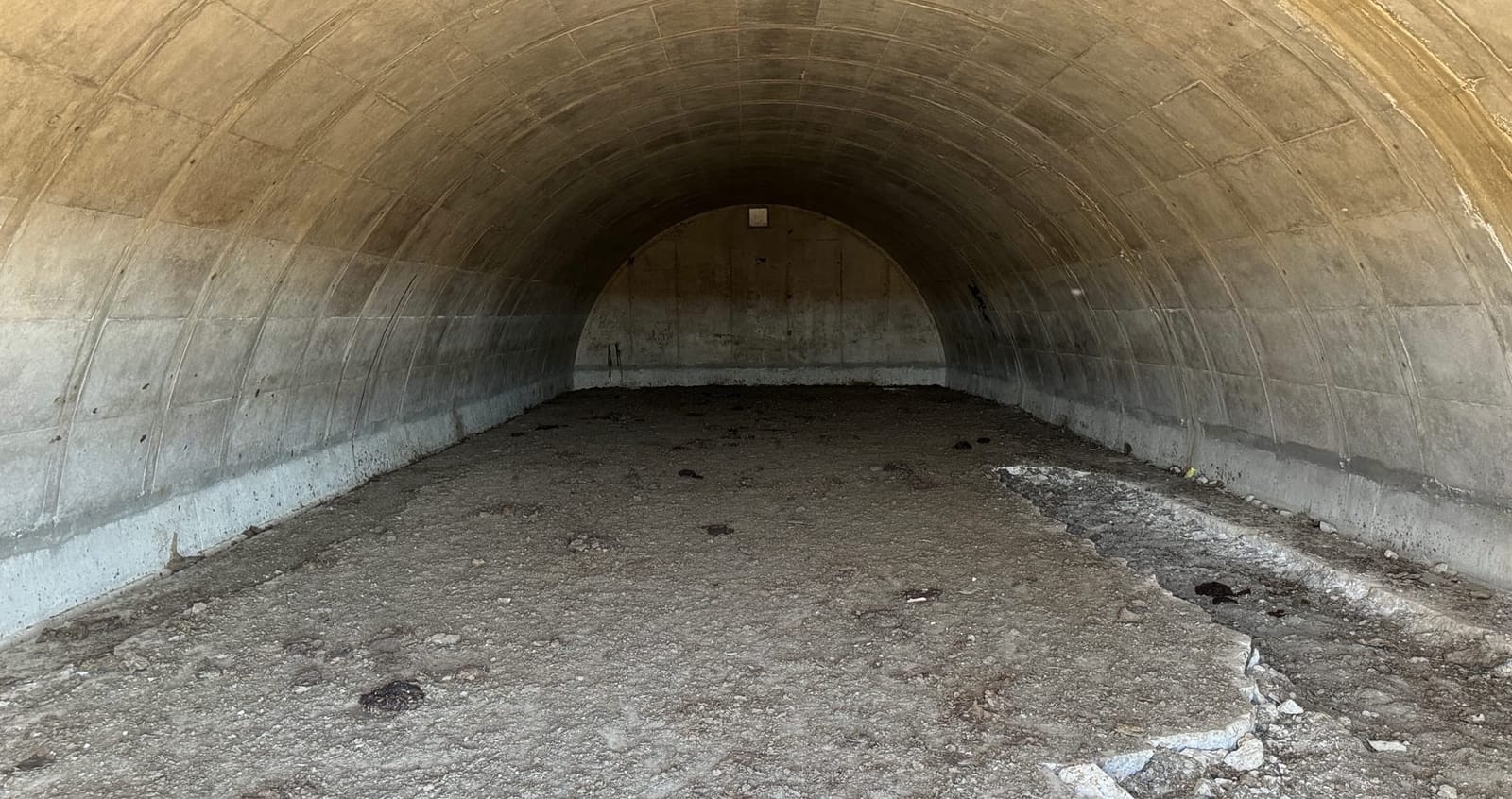The South Dakota Supreme Court will decide the legality of a disputed lease signed by dozens of people who live in former military munitions bunkers located near Edgemont in southwestern South Dakota.
The high court will consider an appeal by the owners of the residential community who lost a recent circuit court case, brought by a former tenant, in which a judge ruled the lease to be legally unenforceable.
The community, known as Vivos xPoint, includes hundreds of above-ground, earth-covered concrete bunkers that were used by the U.S. military from 1942 to 1967 to store conventional and chemical munitions in a town once known as Igloo.
A large portion of the former Black Hills Army Depot munitions facility was purchased and developed in 2016 by California businessman Robert Vicino. The 2,200-square-foot bunkers are now rented as residences, mostly to survivalists or “preppers,” who want to live off the grid and be positioned to survive a global catastrophe.
Legal issues at Igloo bunker community
According to prior reporting by News Watch, the residential community located on windswept prairie land 8 miles south of Edgemont has been beset by conflicts between residents and employees, numerous lawsuits, several complaints to the state attorney general’s office and a near-fatal shooting of a complex employee in 2024.
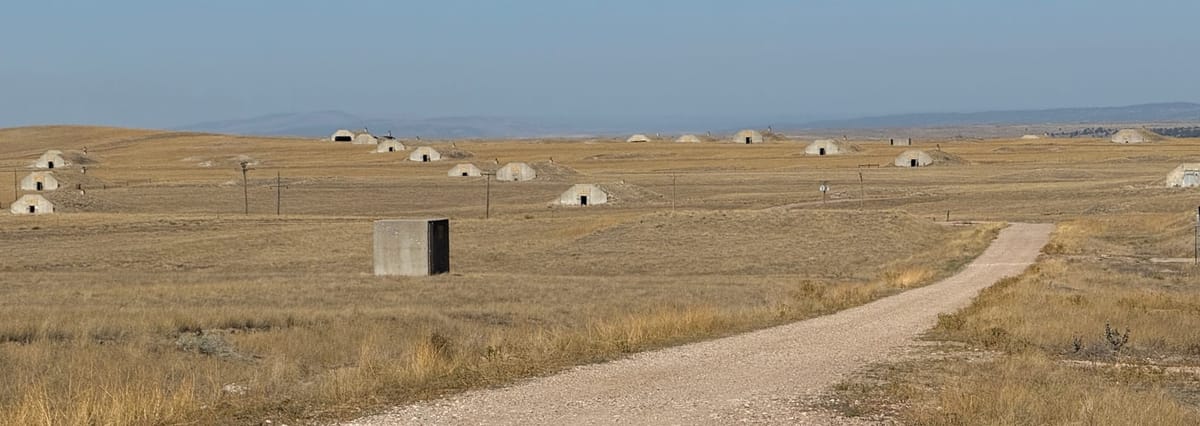
News Watch showed that Vivos has failed to follow through on promises to outfit the community with numerous amenities and employs at least one onsite worker with a violent criminal record. In a prior interview, Vicino said those who complain are “bad apples” and that most Vivos tenants are happy with their treatment.
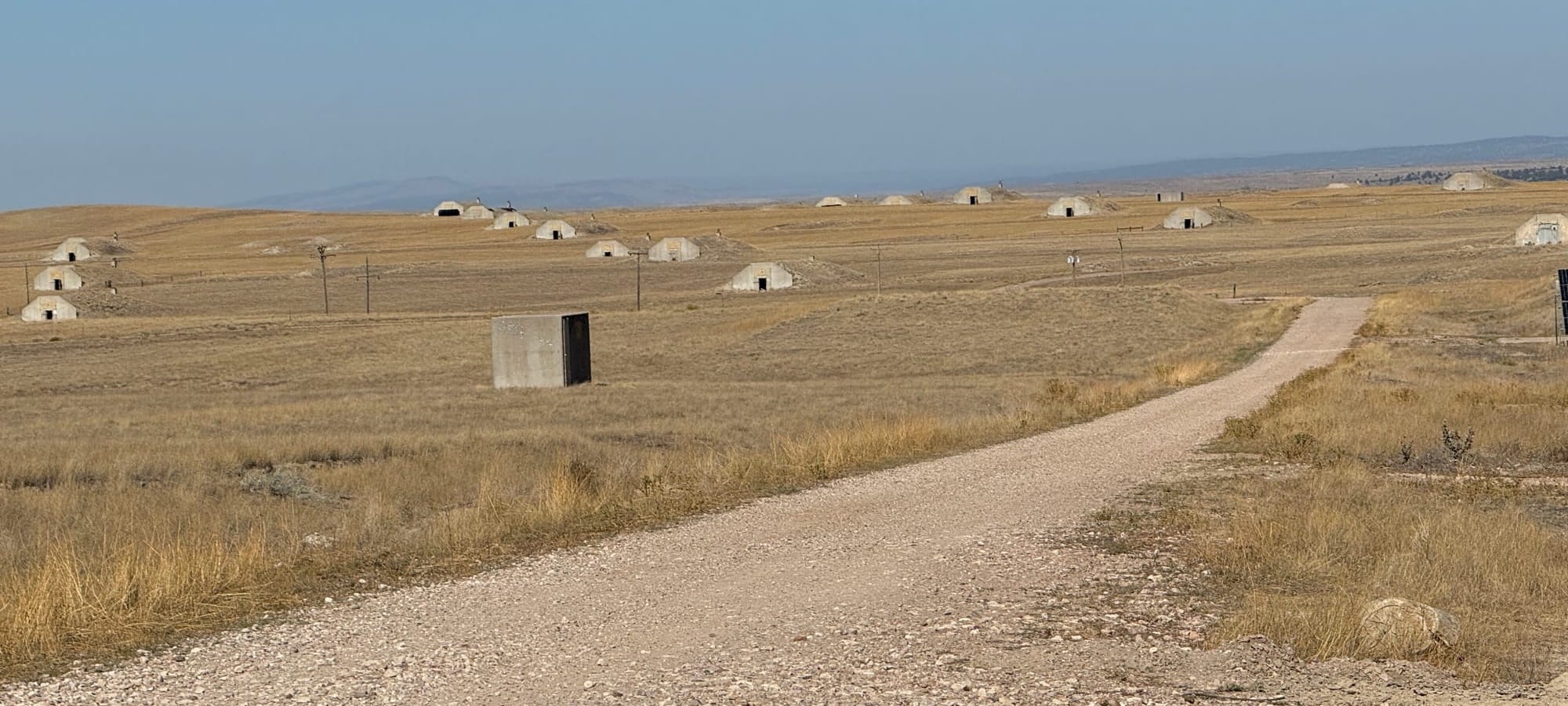
People who live in bunkers or have them ready to occupy do not buy them outright. Instead, they pay an upfront fee of up to $55,000 and sign a 99-year lease that governs the landlord-tenant relationship.
The 14-page lease has become the subject of lawsuits after it was used as the basis to evict several bunker residents, who then lose the right to occupy the bunkers despite paying the upfront fees and a monthly service fee.
J. Scott James, an attorney in Custer who represents several former Vivos residents on a number of separate claims, said the circuit judge’s ruling in late April rejected claims by Vivos that the lease was valid and accepted his client’s claims that the lease was unenforceable by law.
“The judge agreed with our argument that the lease was illegal,” he said.
The attorney for Vivos, Eric Schlimgen of Spearfish, did not return calls from News Watch seeking comment. But Schlimgen has appealed the circuit judge’s ruling, which will bring the matter before the Supreme Court.
Appeal prompted by pulled gun
The high court will review an ongoing case in which former Vivos resident Daniel Sindorf, who signed a lease in 2020, was later evicted by Vivos. The eviction came after a July 2023 incident in which Sindorf pulled out a gun after he said he felt threatened by a Vivos employee’s dogs.
Sindorf said he and his wife had felt threatened by the loose dogs on several occasions and pointed the gun at the ground in the area where the dogs were present.

Vivos argues in court documents that Sindorf had pointed the gun directly at the girlfriend of a Vivos employee and was therefore in violation of the lease and subject to eviction.
The legal case hinges on language within the lease, including changes made after Sindorf signed it.
Vivos states that several months prior to the July 2023 confrontation, the company added an addendum to the lease making it a violation to “brandish” a weapon outside of designated shooting areas within Vivos. The company said Sindorf received a copy of the addendum, which it said was emailed to Vivos leaseholders.
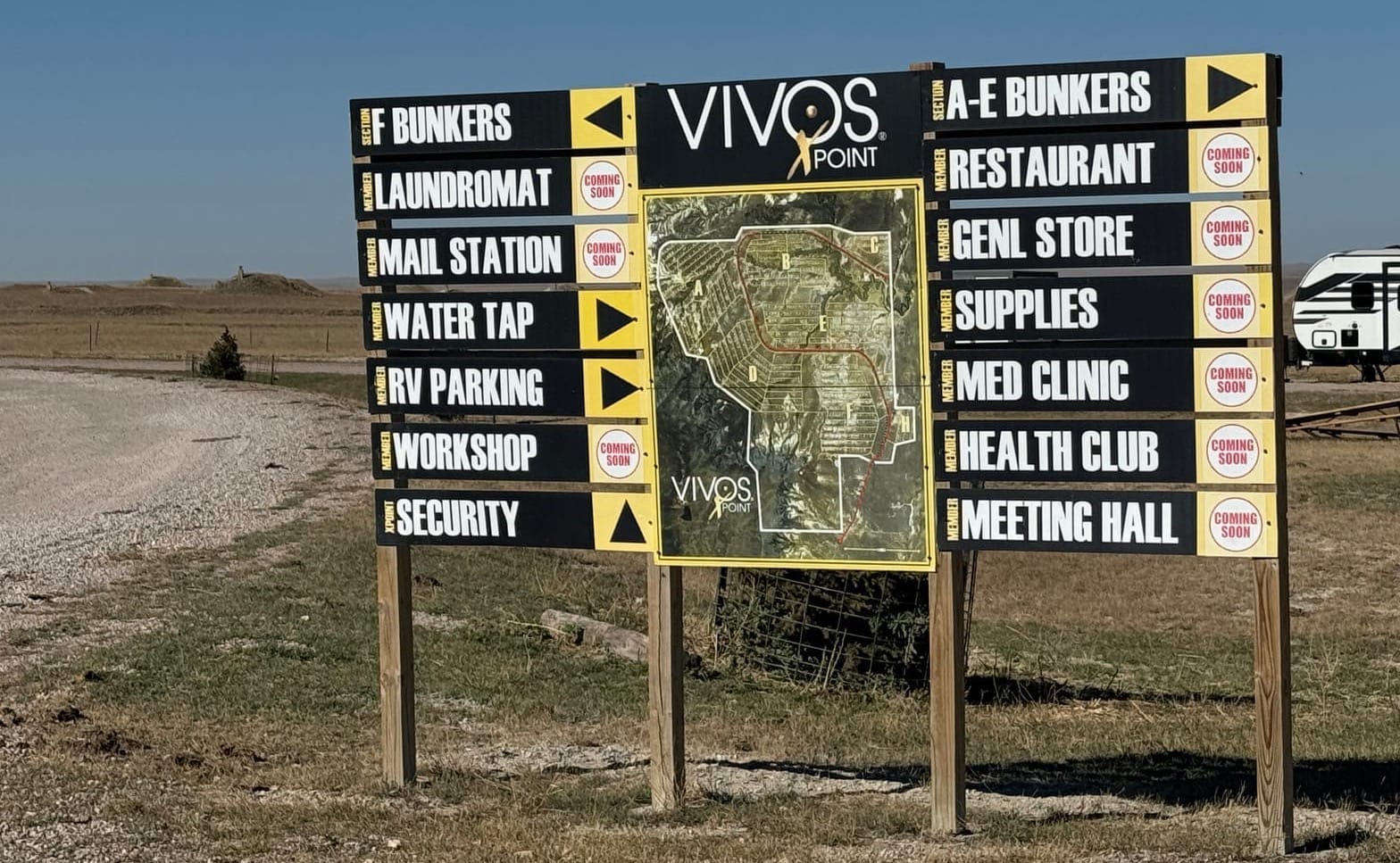
Sindorf’s attorney, however, argued in the lawsuit that the lease and therefore the eviction were both illegal because it is not lawful to make changes to a signed lease without consent of both parties or without recourse by the tenant.
“Our argument essentially was that the lease wasn’t binding on Mr. Sindorf because they could change the rules at anytime they want to,” James told News Watch. “Unlike other legal contracts, there was no cancellation option, no way for him to pull out of that and no recourse."

In a three-page ruling, Circuit Judge Scott A. Roetzel agreed, noting that, “the 99-year lease is an illusory contract that plaintiff (Vivos) can unilaterally modify the terms of at any time with no resource for defendant (Sindorf).”
Some claims not addressed in ruling
The initial lawsuit filed by Sindorf demanded that he and his wife be refunded the majority of the $35,000 they paid up front to lease a bunker for 99 years and for the monthly fees that were supposed to go toward amenities and services the lawsuit alleges were never provided.
"Plaintiff (Vivos) accepted the common area fees, but failed to complete its obligations ... specifically there was no evidence of potable water, and no trash removal was ever done as described, and no security was provided as described," Sindorf's lawsuit states.
The judge's April ruling did not address those claims or others raised in the initial filing. Sindorf continues to pay monthly fees to Vivos, though that money will now be held in escrow, according to court documents.
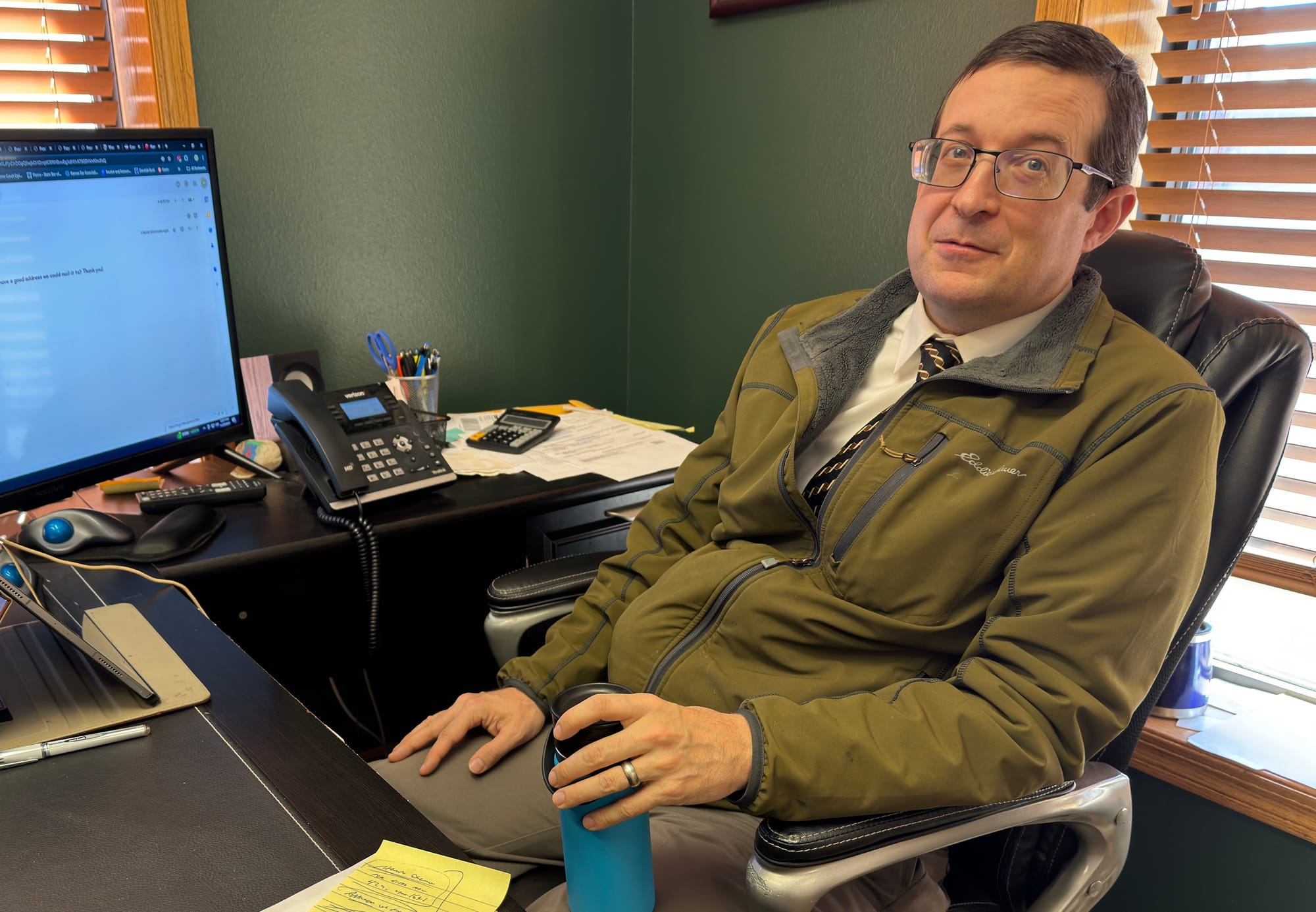
James and Vivos are both seeking clarification from the Supreme Court on whether the April ruling negates the entirety of the lease, which also contains controversial elements that include fines or possible eviction if tenants talk to the media and does not allow for return of any funds paid if eviction takes place.
Notice of an appeal has been filed with the Supreme Court, and Vivos xPoint must file the formal appeal by June 16, according to an employee in the Supreme Court clerk’s office. Sindorf’s legal team will then have 45 days to respond. After that, the court could decide to hear oral arguments or just review the entirety of court filings made so far before making a ruling, the employee said.
James said Judge Roetzel has placed a stay on several other pending eviction lawsuits filed by former tenants as the current case moves forward. Several other claims and counter claims involving Vivos are still pending in the courts.

James previously told News Watch that Vivos finds ways to evict tenants and then re-leases their bunkers with a requirement that new tenants pay the upfront and monthly fees.
"A lot of these people paid between $35,000 to $50,000 for what Vivos calls a 99-year lease on these bunkers. And if it's truly a 99-year lease, and you're evicting my client in year three or four, and they've prepaid 95 years of lease money, then you should have to give it back, at least a prorated amount," James said in 2024. "They (Vivos) get to say, 'OK, we just get to keep reselling these things over and over to people,' and that seems like it's an inequitable relationship."
James said a high court ruling in his client's favor could affect not only the ongoing lawsuits by former Vivos tenants but could set a precedent that it would be illegal for one party to alter contracts signed in South Dakota without the other party’s consent.
This story was produced by South Dakota News Watch, an independent, nonprofit organization. Read more stories and donate at sdnewswatch.org and sign up for an email to get stories when they're published. Contact Bart Pfankuch at bart.pfankuch@sdnewswatch.org.

